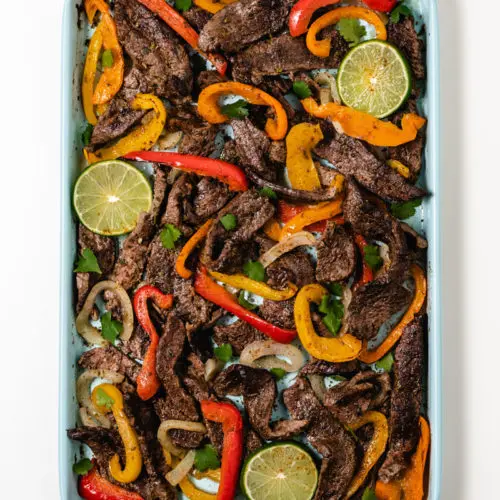Hi, guys! Thank you for joining us for this week’s Easy Keto with Tasha! As you recall, last week was all about demystifying keto macros. Today’s focus will tackle the next step: tracking macros!
What are Macros?
Macros are short for macronutrients. They are the carbs, protein, and fat from your food, and they provide your calories.
Macros are important to keto because the balance of macronutrients in your diet affects whether or not you are in ketosis. Carb restriction induces ketosis, and carbohydrates are one of the macros.
If your only goal is nutritional ketosis, then you can focus solely on carbs. However, the other macros--protein and fat--are still important for achieving weight and body composition goals!
For a more in-depth breakdown of what macros are, check out last week’s episode, Keto Macros Demystified [E17].
Who Should Track Macros?
I do not recommend tracking macros 24/7. I don’t do that, and most people following keto don’t do that either. However, many people find the process of tracking macros to be beneficial to their goals.
Not sure if tracking macros is right for you? Ask yourself this. Are you:
- Total keto newbies. While you’re figuring out what you can and cannot eat on keto, tracking can help you stay mindful of your carbs. Don’t stress too much about protein and fat at this point.
- Someone who has a good relationship with food and is working on body composition. You may already be at a healthy weight. There is no stress about each bite of food you eat. You don’t fear food, nor do you have extreme eating habits. Tracking macros to keep you in line with your goals can ensure you’re making progress.
- People working to resolve nutritional deficiencies. Tracking your food will provide you with a detailed nutritional breakdown that allows you to make positive decisions about your food.
- People that are data-minded and analytical. You enjoy having the statistics and metrics purely because you like data.
Who Should NOT Track Macros?
Just as there are some people who benefit from tracking macros, there are also people who would do well to avoid it. People who associate tracking with stress and resistance, or have struggled with unsustainable tracking previously, would do well to avoid it.
Forcing yourself to track macros when you find it to be extremely stressful is not helping. Perceived stress will not help you reach your goals; it will sabotage you. If that’s how you feel about tracking macros, then it’s okay to ditch it!
People with disordered eating habits and those who feel triggered by tracking are also not good candidates for this. The most important thing is that you create a healthy relationship with food. If you have a history of disordered eating habits, I suggest you do not even think about dieting.
Finally, diet perfectionists should avoid tracking macros. The diet perfection mindset also goes hand-in-hand with disordered eating habits. Frequently, perfectionism requires that everything be perfectly aligned or it is a failure. Nutrition facts and data are just estimates and averages. Getting caught up in the minutia of hitting macros will only add stress and waste your energy.
Tracking Macros on Keto
The first step to take in tracking macros is to calculate your macros. Ensure that your keto macro calculator is limiting carbs, providing adequate protein for lean body mass, and utilizing fat based on energy needs. Remember, fat is variable. Also, make sure your calculator provides macro data in grams, NOT in percentages or ratios. Check out our macro calculator and tutorial!
Now that you have your results from the calculator, you can use them as goals to guide your eating. Use this information to make decisions when looking at labels or deciding what to cook. For keto, your macros are not fixed targets.
With carbs, think of your macro as a limit. You don’t necessarily have to hit your macro goal to be successful. Instead, that’s the limit you should aim to maintain ketosis.
With protein, your macro is more like a goal to achieve. You can preserve your lean body mass by ensuring that you’re consuming a sufficient amount of protein. If you have a protein goal, you should try to hit it. With protein, you would be better going over goal rather than being under it.
Fat is a limit, especially if weight loss is the goal. Many people look at fat as a lever that can be adjusted up or down, depending on your goals. Fat is the main source of your calories. Eating lower-fat will create a higher calorie deficit; eating more fat will create a lower-calorie deficit. Fat can come from your plate or your body.
Recording Your Progress
You’ve calculated your macros. You’re eating food and letting it guide your choices. It’s time to tally up your carbs, protein, and fat from the food you’re actually eating. Do it manually in a journal, create an Excel spreadsheet, or utilize a food tracking app. Choose something that works for you that you will stick with.
Use information from food labels and nutrition databases for tracking macros. This is one reason why it’s so important to track your macros in grams instead of percentiles or ratios.
Take the nutrition information for your serving size. Document the carbs, protein, and fat. Do this for everything you consume. Tally these values throughout the day. From there, you can compare the values that depict what you actually ate to your macro goals.
Counting Calories and Tracking Macros
Tracking macros is very similar to counting calories. You have a budget to spend. However, where calories come from one wallet, your macro budget comes from three separate wallets with different amounts.
When you track your macros, you’re also counting your calories. This is because your macros are what make up your calories. They’re tied together. You’re also tallying your overall calorie intake when you add your carbs, protein, and fat together.
Macro Tracking Apps
There is no shortage of nutrition apps. If you find a quality app, it can make tracking macros extremely easy. While not all apps are created equally, they do tend to provide the same thing.
To find the best app for you, ask yourself what you want to get out of it. Is your goal to simply track macros, or do you want an in-depth nutritional analysis?
Cronometer: An extremely detail-oriented app. This is the most accurate and in-depth database that is easily available. The free app provides tracking and detailed nutrition information. The premium version also tracks trends that occur over time.
Nutritionix: The most user-friendly, free tracking app. This app provides basic information that would be found on a nutrition label. It also has a barcode scanner. This app would be good for someone who already knows their macros, but they need a resource to track their diet.
Keto Without Tracking Macros
Tracking macros might feel a bit overwhelming. If you feel like tracking is too time-consuming and that it doesn’t fit within your diet, don’t stress! You do not have to track your macros.
We’ll explore strategies for doing keto without tracking in a different episode, but until then, remember these pointers.
- Focus on eating foods that are naturally low in carbs. Eat protein and non-starchy vegetables, and utilize the portion control suggestions from Portion Control Made Easy [E13].
- Follow mindful/intuitive eating. Listen to your hunger cues, eat your lower carb meals when you’re hungry, and stop when you’re full.
- Meal plan. Proactively work out meals that align with your goals. Check out the Master Your Macros meal plan that adapts the recipes to your unique macronutrient input!
Tracking macros can be a great thing, but you should follow what works for you!
Further Resources
Keto Macros Demystified: Everything You Need to Know [E17]
Portion Control Made Easy: A Hands-On Approach [E13]
Keto Calculator: Macros for Women
Keto: A Woman’s Guide & Cookbook
Timestamp
Intro
1:39 - What Are Macros?
3:17 - Who Should Track Macros?
7:10 - Who Should NOT Track Macros?
11:14 - Tracking Macros on Keto
19:09 - Recording Your Progress
22:49 - Counting Calories and Tracking Macros
23:50 - Macro Tracking Apps
24:23 - Cronometer
29:26 - Nutritionix
34:18 - Keto Without Tracking Macros
Subscribe & Review in iTunes
Are you subscribed to my podcast? If you’re not, I want to encourage you to do that today. I don’t want you to miss an episode. I’m going on an epic podcasting spree and if you’re not subscribed there’s a good chance you’ll miss out on the new episodes. Click here to subscribe in iTunes!
Now if you’re feeling extra loving, I would be incredibly grateful if you left me a review over on iTunes, too. Those reviews help other people find my podcast and they’re also fun for me to go in and read. Just click here to review, select “Ratings and Reviews” and “Write a Review” and let me know what your favorite part of the podcast is. Thank you!

Hi, I'm Tasha–nutritionist, recipe developer, and multi-published cookbook author.










Leave a Reply